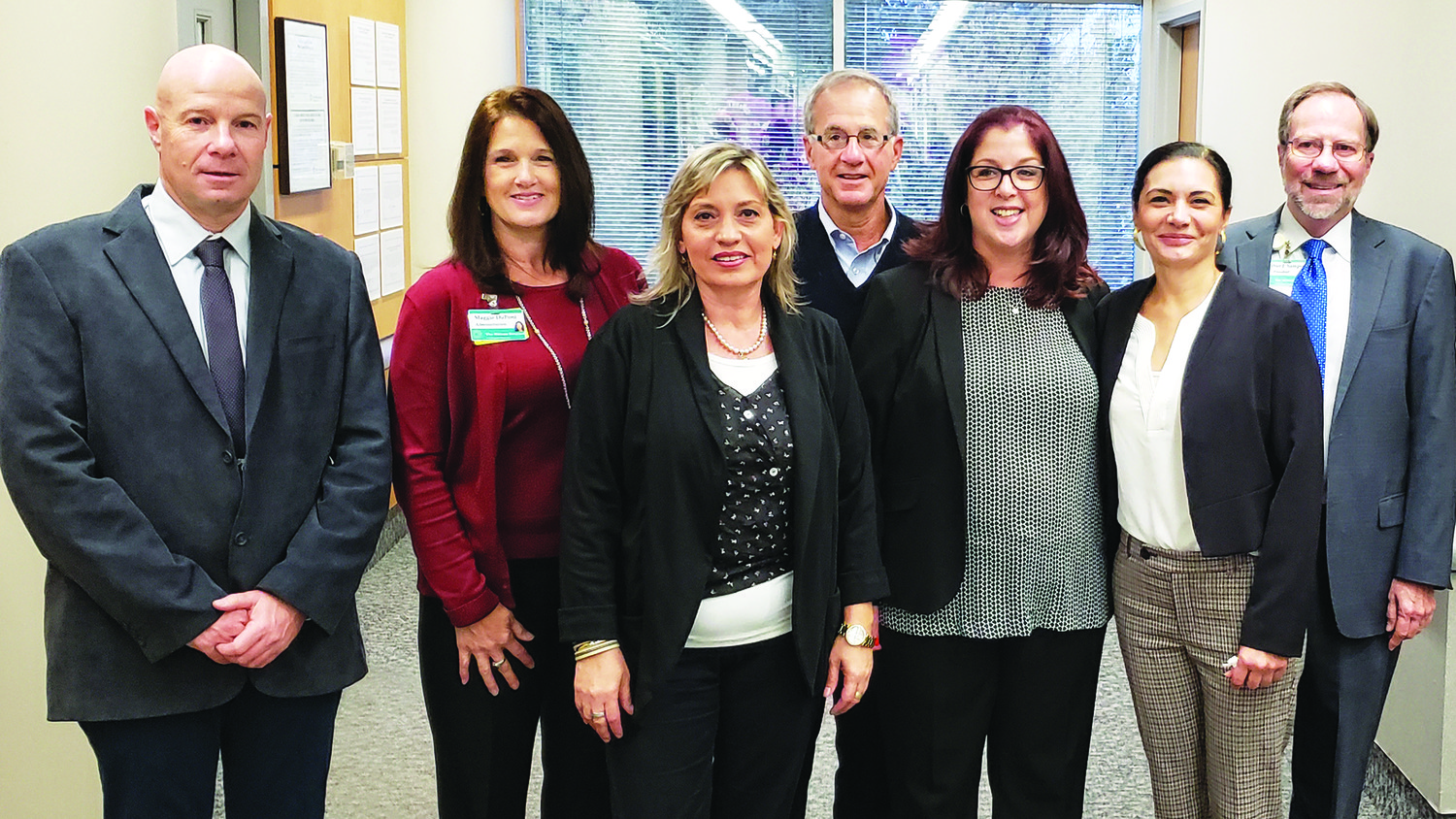Exchange program brings Israelis to The Miriam Hospital, renews Jewish bonds
A rich tradition continued this fall when a medical team from Emek Medical Center in Israel visited The Miriam Hospital as part of a professional and cultural exchange program that began in 2005.
The exchange program brings the Israelis to a hospital and its surrounding community that has deep and cherished Jewish roots. And it strengthens bonds that The Miriam has sought to develop with its sister hospital in Afula, in the Jezreel Valley of northern Israel.
During the last week of October, The Miriam hosted four representatives from Emek for a visit that included tours of medical facilities and discussions with medical professionals and administrative staff.
“This is a wonderful program that greatly benefits both Emek Medical Center and The Miriam Hospital,” said Arthur Sampson, president of The Miriam. “Not only do we get to share ideas on how best to care for our patients and strengthen our institutions, but we continue to cultivate a relationship between two hospitals that cherish their Jewish identity.”
The four visitors from Emek were deputy director and trauma surgeon Gil Hirschhorn, MD, customer service manager Michal Kril, nursing director Yehudit Hyatt and emergency department nurse manager Pnina Sabag.
“We feel at home,” Hyatt said at The Miriam one day, while observing that the hospital has many Jewish items on display, from menorahs to mezuzot – not to mention a photograph of Emek Medical Center.
During the visit, Hirschhorn gave a presentation on emergency preparedness during grand rounds at Rhode Island Hospital. It was within one week of the fatal shootings at Tree of Life Synagogue and the same week that The Miriam Hospital conducted a planned active shooter drill, which the Israeli contingent observed.
In some ways, Hirschhorn said, Emek’s situation is different since security in Israel, where threats have historically been more prevalent, is already far more restrictive than it is in the United States. But the two institutions also are similar in their need “to prepare a hospital for an emergency situation.” The challenge, he said, is “how do you take a hospital that is busy, with a shortage of staff, and prepare them.”
Other highlights for the contingent included sightseeing in Providence and outings and dinners with prominent members of the Jewish community.
“The hospitality has been great,” said Sabag.
Jeffrey Brier, who chairs The Miriam’s Israel Steering Committee and is a life trustee of its Foundation Board, played an active role in establishing the exchange to promote The Miriam’s Jewish heritage. He’s also very active in helping to host the Emek visitors.
“I was in Israel in the early 1990s and our itinerary included a stop at Emek Medical Center. They happened to be conducting a war drill,” said Brier. “The scope and organization of the drill was impressive and that planted the seed for exploring if it would be beneficial to The Miriam Hospital and Emek Medical Center to start an exchange program.”
Today, the exchange “is still thriving,” he said. “This program gives doctors, nurses and administrators from both institutions the opportunity to experience a health care setting in a foreign country with a different model of care as well to collaborate on best practices and research. All who have participated are amazed by what we do differently as well as how much we have in common, and they have found the experience to be most rewarding.”
Submitted by The Miriam Hospital








